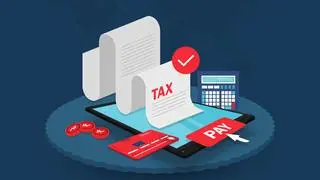With growing concerns around misinformation globally and inappropriate curated content in India, the Information Technology (Intermediary Guidelines and Digital Media Ethics Code) Rules, 2021 have been issued by the Central government. The 2021 Rules have a thrust on self-regulation of publishers of news media and curated content, and provide a Code of Ethics for guiding their conduct.
All publishers of news media and curated content are required to register with the Ministry of Information and Broadcasting and appoint a grievance officer, resolve complaints in 15 days and publish monthly updates about complaints received. Notably, the definition of publishers of news media in the 2021 Rules is widely worded and overbroad. The definition includes different media outlets of varying scales such as online local news portal run by individuals, news portals dealing exclusively with sports news, and the online presence of established media outlets alike, resulting in casting onerous obligations even on small scale news portals with limited readership and creating operational difficulties.
Three-tier self-regulatory model
Complaints to the grievance officer is the first level of the three-tier self-regulation model. The second level of self-regulation is scrutiny by a self-regulating body. Each publisher must become a member of a self-regulating body headed by a retired Supreme Court or High Court Judge or an independent eminent person from a relevant field. The body can issue recommendations and ensure compliance of the Code of Ethics. Strangely, no express provisions have been provided for (i) publishers to appeal against any recommendation of the body and (ii) procedure to resolve any dissent within the self-regulating body while issuing recommendations.
The third level of self-regulation involves the oversight by the Central government. In fact, the Central government has a role even in the second level because each self-regulating body must be registered with the IB Ministry. The registration itself will be based on scrutiny of its constitution and alignment with Code of Ethics. If the self-regulating body fails to ensure compliance, in the third level, the Central government retains vast supervisory powers through the inter-departmental committee to hear complaints or references.
This self-regulation model is not the first of its kind. Even Australia has set up self-regulation by a voluntary body of peers for online content. However, the involvement of the Central government in the self-regulation model is an aspect unique to India. The involvement of the Central government and ambiguities of the 2021 Rules and Code of Ethics underscore the key issue plaguing it – the possible chilling effect on the free speech of the media.
The 2021 Rules came in force after a recent controversy about alleged inappropriate content in a web series on a platform. In that case even the platform’s head was embroiled in legal proceedings. The standard for classification for online curated content in the 2021 Rules is ambiguous. The practicality of obligation to ensure age verification of viewers of online curated content remains untested. This is an area of concern and will require evolution of jurisprudence as well as technology. This coupled with the wide-ranging powers to reprimand, seek modification of content, etc. may deter the creative liberties of artists.
Another interesting addition is the power to order deletion or modification, as appropriate for a specific piece(s) of content either on the recommendation of an inter-departmental committee or in case of emergency with the approval of the Secretary of IB Ministry. These powers are in addition to the Information Technology (procedure and safeguards for blocking for access of information by the public) Rules, 2009 (or, ‘Blocking Rules’). The emergency blocking procedure under Part III of the 2021 Rules deviates significantly from the Blocking Rules. This is because it fails to provide the procedural safeguard of an opportunity to be heard post-facto in case of emergency blocking.
Transparency and accountability
However, it must be noted that unlike the Blocking Rules, there is no confidentiality requirement in relation to proceedings under Part III of the 2021 Rules. This is a welcome development as it infuses transparency and accountability in the exercise of powers relating to content removal.
Lastly, the 2021 Rules have been most widely criticised for being issued without any public consultation. In fact, the Information Technology Act, 2000 (IT Act) does not contain any provisions dealing with the governance of publishers of news media and curated content. Several petitions have been filed challenging Part III of the 2021 Rules as ultra vires. As such, Part III of the 2021 Rules does not have any nexus to the object and scheme of the parent statute, i.e., IT Act.
This aspect merits judicial review. If implemented in its present form, the exercise of wide adjudicatory powers by a self-regulating body and inter-departmental committee will have a lasting impact on artistic freedom and digital news reporting in the coming years. It will be worthwhile to see whether the self-regulation model with the Central government intervention results in self-censorship by publishers.
(The author is Partner, Phoenix Legal, a law firm)








Comments
Comments have to be in English, and in full sentences. They cannot be abusive or personal. Please abide by our community guidelines for posting your comments.
We have migrated to a new commenting platform. If you are already a registered user of TheHindu Businessline and logged in, you may continue to engage with our articles. If you do not have an account please register and login to post comments. Users can access their older comments by logging into their accounts on Vuukle.